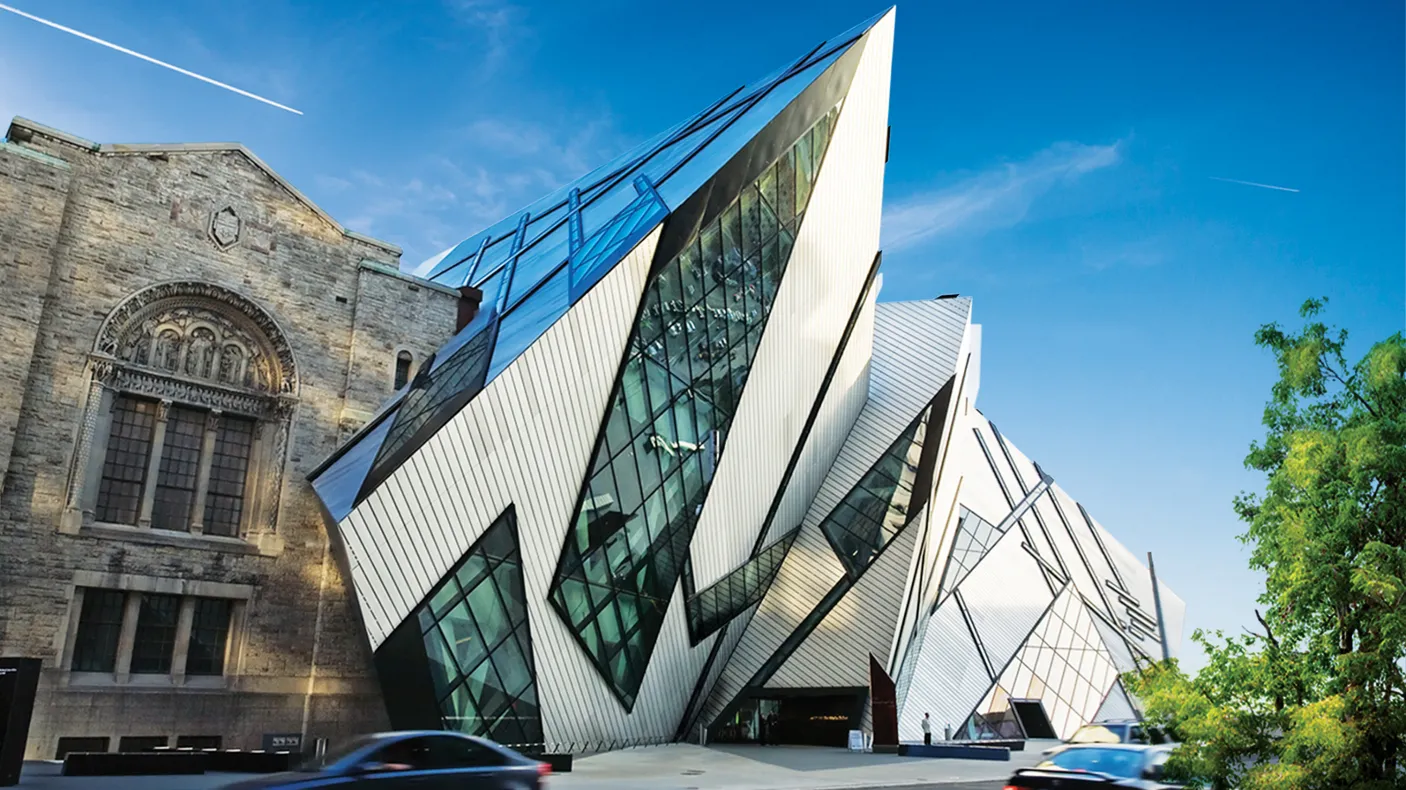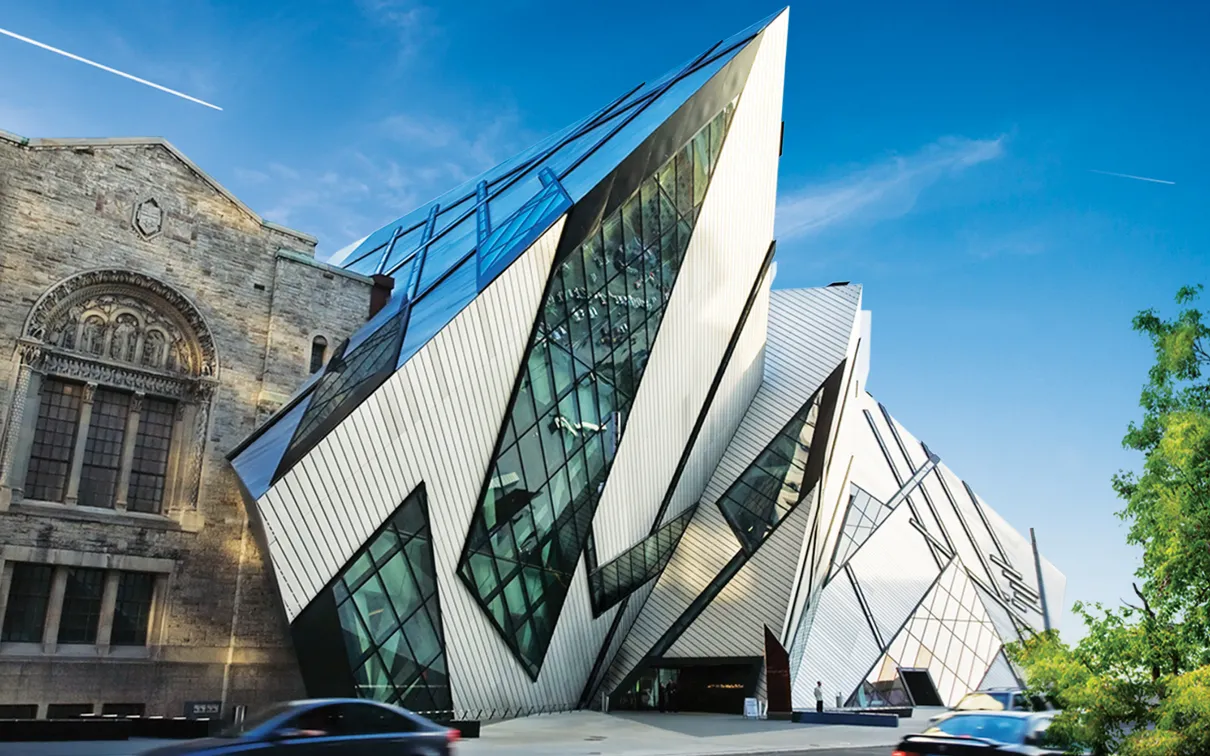How to Save the World
Published
Category
Press Release
Free evening of rousing discussion and debate featuring three innovative thinkers takes place May 19
In celebration of the opening of the Schad Gallery of Biodiversity, the ROM’s new permanent gallery devoted to exploring and protecting life on Earth, the Royal Ontario Museum (ROM) presents How to Save the World, an evening of stimulating discussion featuring three experts with very differing points of view. Panelists include Thomas Homer-Dixon - a scholar, Gregg Easterbrook - a journalist and Terry Anderson - the head of an economic think-tank. The debate is moderated by Mark Kingwell, a philosopher and professor at the University of Toronto. Topics include the current state of the environment and the best practices and policies to protect the Earth.
This free event takes place on Tuesday, May 19, from 7 to 8 pm in Samuel Hall Currelly Gallery on Level 1. Please enter through the Museum’s main Bloor Street entrance. Seating is on a first come, first served basis. For more information call 416.586.5797 or visit www.rom.on.ca/programs.
MODERATOR
Mark Kingwell
Mark Kingwell is Professor of Philosophy at the University of Toronto and a contributing editor of Harper’s Magazine. He is the author of 11 books on political and cultural theory, including the national bestsellers Better Living (1998), The World We Want (2000), and Concrete Reveries: Consciousness and the City (2008). He is the recipient of the Spitz Prize in political theory, National Magazine Awards for both essays and columns, and was the Weissman Distinguished Visiting Professor of Humanities for 2002 at the City University of New York.
PANELISTS
Terry Anderson
Terry Anderson is the executive director of the Property and Environment Research Center (PERC), a think-tank focusing on market solutions to environmental problems located in Bozeman, Montana. A Senior Fellow at the Hoover Institution, Stanford University, and professor emeritus at Montana State University, his work has helped launch the idea of free market environmentalism and has prompted public debate over the balance between markets and government in managing natural resources.
Terry Anderson makes a powerful argument for free market environmentalism in dealing with the current state of the planet. In his recent book, Greener Than Thou: Are you Really an Environmentalist?, he argues that, in the words of conservationist Aldo Leopold, “Conservation will ultimately boil down to rewarding the private landowner who conserves the public interest.”
Gregg Easterbrook
Gregg Easterbrook is an American journalist and author who writes about politics, society and the environment. He is a contributing editor to The Atlantic Monthly, The New Republic and The Washington Monthly, a visiting fellow at the Brookings Institution, and a columnist for ESPN.com. Easterbrook has written a number of books including the New York Times best-seller, A Moment in Time: The coming age of environmental optimism. His most recent book is The Progress Paradox: How Life Gets Better While People Feel Worse published by Random House in 2004.
Gregg Easterbrook makes the assertion that almost all aspects of Western life have vastly improved in the past century, and the environment is not necessarily the crisis some believe it to be. He makes a case that optimism, gratitude, and acts of forgiveness not only make modern life more fulfilling, but are actually in our self-interest as they improve our collective ability to make the world better.
Thomas Homer-Dixon
Thomas Homer-Dixon holds the Centre for International Governance Innovation Chair of Global Systems at the Balsillie School of International Affairs at the University of Waterloo. Tad’s recent bestselling books include The Upside of Down: Catastrophe, Creativity, and the Renewal of Civilization and The Ingenuity Gap. Currently, his research focuses on threats to global security in the 21st century and on how societies adapt to complex economic, ecological, and technological change.
Thomas Homer-Dixon argues that human carbon emissions are a key environmental concern. We depend on carbon energy to fuel our complex economies and societies, and at the same time carbon is strongly contributing to climate change that could harm humankind in coming decades. Thomas Homer-Dixon believes that both of these monumental societal and environmental issues can be addressed by the adoption of carbon pricing, which will stimulate new thinking and the development of innovative technologies such as clean, low-carbon energy.
SCHAD GALLERY OF BIODIVERSITY
Opening at the ROM on May 16, 2009, the Schad Gallery of Biodiversity is devoted to exploring our world’s biodiversity and the numerous factors affecting its conservation and survival. This innovative and interactive gallery combines seven ecosystem experiences, approximately 2,500 specimens and the Earth Rangers Studio featuring live animal ambassadors to convey an important message about the stunning variety of life on Earth, the interconnectedness of nature’s amazing web, and the ability that each of us has to care for the environment.


